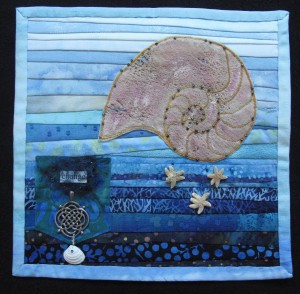I’ve been pondering success lately. As friends and colleagues move into retirement or pre-retirement planning (indeed, as my husband and I begin to consider the shift in life stages), I’ve been pondering how those I know, those I love, measure success. I was talking with my father recently about what he and my mother taught us about ultimate values and how that was and is in tension with the cultural definitions of success which equate progress with consumption, and success with accumulation.
I’ve been pondering my own ability and my own difficulty in discerning — clearly and with consistency — between need, want, boredom, and the genetic “gatherer” instinct that may have made the difference between life and death for my distant ancestors, but can easily lead to pathological hoarding in the 21st century developed world.
By coincidence (if one believes in coincidence), I have been providing support, encouragement, and some coaching to two different people who are seeking to declutter their lives. Both of these folks understand that the physical act of decluttering is also an emotional and psychological experience, and that getting rid of material things is a process of opening emotional and spiritual space. But it is not easy. Letting go of the stuff that defines the parameters of one’s life, the stuff that holds the freight of memory, the stuff that tells the community that you have been ‘successful’, the stuff that cushions you from the unexpected swings of life. . .that letting go is challenging and more than a little frightening. Letting go at this level is cutting your identity free from external anchors and trusting that you are enough.
Please understand that this is a change that I am still fully engaged in myself. I think that is why I am helpful to my two friends: I am also in the midst of wrestling with fundamental questions about changing mental, emotional, physical, spiritual, and psychological habits around the internal-external identity continuum.
The closest analogy I have at the moment to ‘decluttering’ (the one that helps me shape my options best) is ‘dieting.’ The mind set behind dieting is losing weight so that you can stop thinking about what you are eating — which really means that you go right back to the same behaviors you had before the diet as soon as you finish ‘dieting’. Decluttering (for most of us) is getting rid of the stuff we are sick of dusting or have to step over on our way to the bedroom or need to discard so that we can actually park the car in the garage during the winter. But without changing the values that led to the accumulation of unnecessary stuff in the first place, the current clutter will only be replaced with future clutter.
 (Im)materialism is a different thing entirely. It is about naming our values so that our internal and external lives will be in alignment. I struggled with my weight for many years until I realized that my value was to be as healthy as possible, to move easily, and to remain flexible and strong into my 90s (as my great-grandfather did, farming until the month he died at 94). I do understand that accidents happen, that chronic and terminal illnesses can strike, that life has no guarantees. [If my car goes off the road into a deep lake, my seatbelt may not (in fact) save my life, but I make the best decision I can and then cope.] At that point, I stopped dieting entirely and changed the way I ate and exercised to throw my energy on the side of the future I wanted. It was a paradigm shift.
(Im)materialism is a different thing entirely. It is about naming our values so that our internal and external lives will be in alignment. I struggled with my weight for many years until I realized that my value was to be as healthy as possible, to move easily, and to remain flexible and strong into my 90s (as my great-grandfather did, farming until the month he died at 94). I do understand that accidents happen, that chronic and terminal illnesses can strike, that life has no guarantees. [If my car goes off the road into a deep lake, my seatbelt may not (in fact) save my life, but I make the best decision I can and then cope.] At that point, I stopped dieting entirely and changed the way I ate and exercised to throw my energy on the side of the future I wanted. It was a paradigm shift.
(Im)materialism is a similar shift — one I am still in the midst of — that invites me to live the values I hold of sustainability and generosity. I feel like I am getting closer. I really have almost no patience any longer with dusting things, tending things, moving things, or with trying to find something that has been put away in the wrong place. I want that time for other experiences and I want to be leaving an abundant world to grandchildren who have not been born yet. Not so strangely, those two values support one another: when I take less from the world, there is more for others. And the icing on the cake is that my heart and mind and soul are lighter when my values and my choices align.
And so I am pondering why I still get hooked by a definition of ‘success’ that my own experience tells me is a lie.
If you are on a similar path or wrestling with similar questions, let me know what you are learning or asking.
–Andrea
Text © 2014, Andrea La Sonde Anastos
Photo © 2014, Immram Chara, LLC